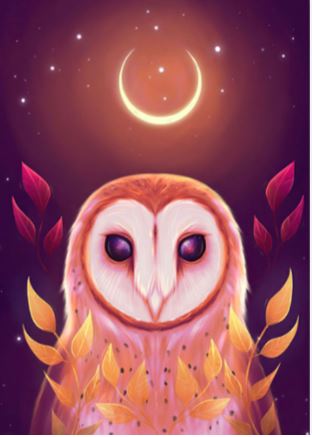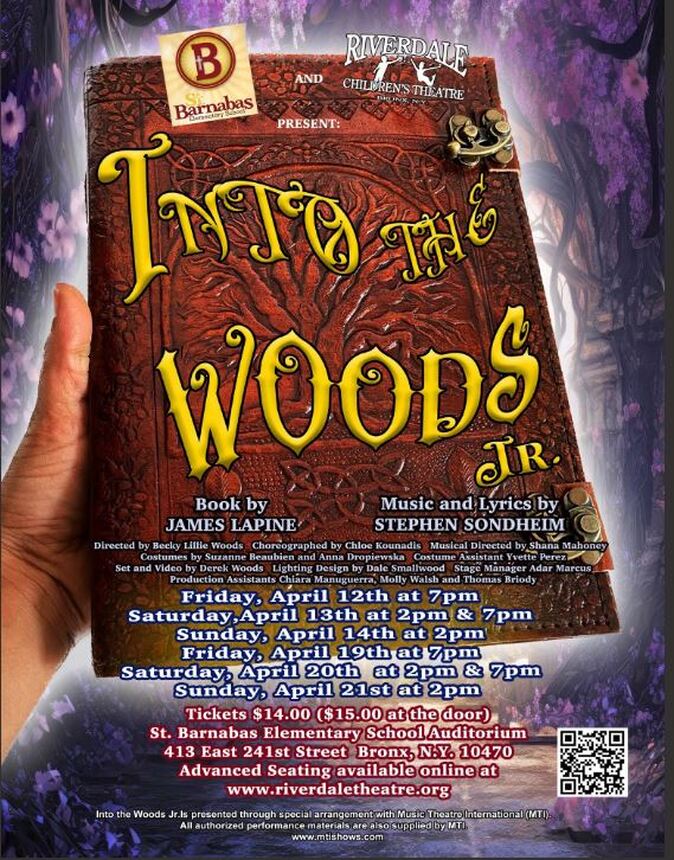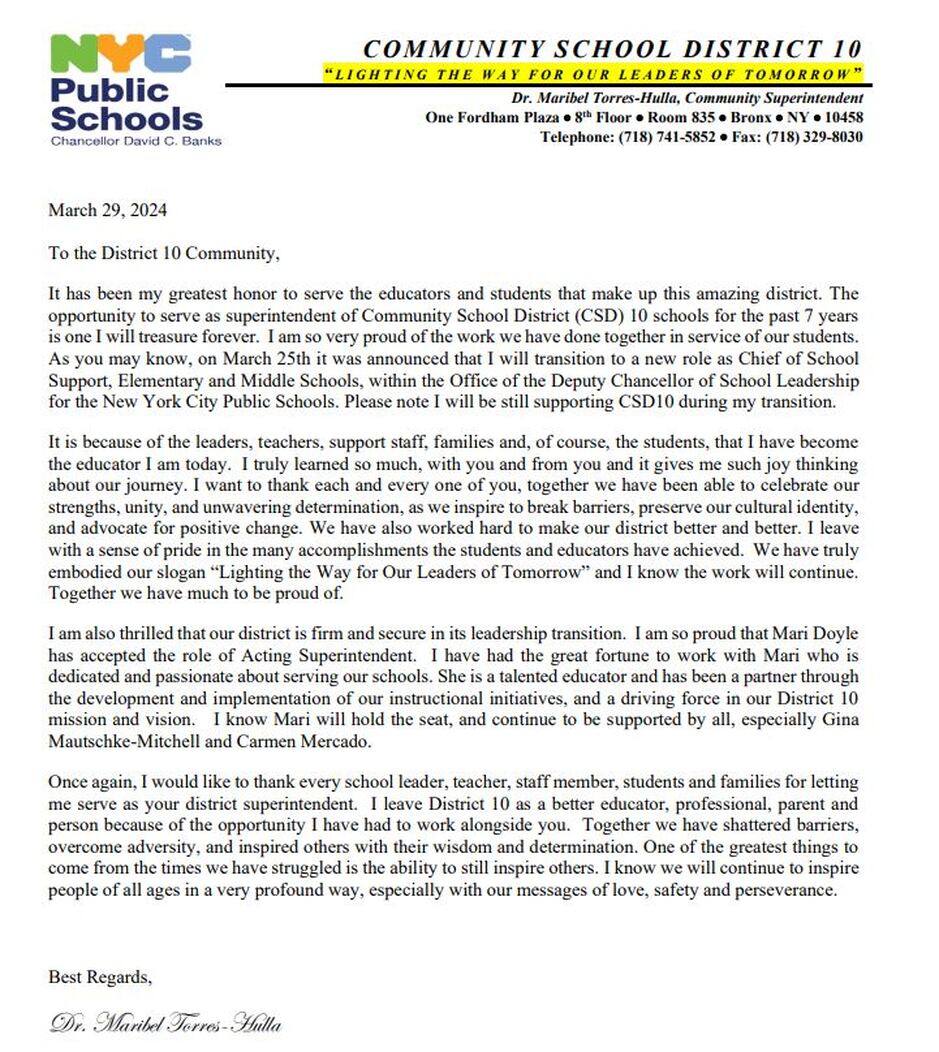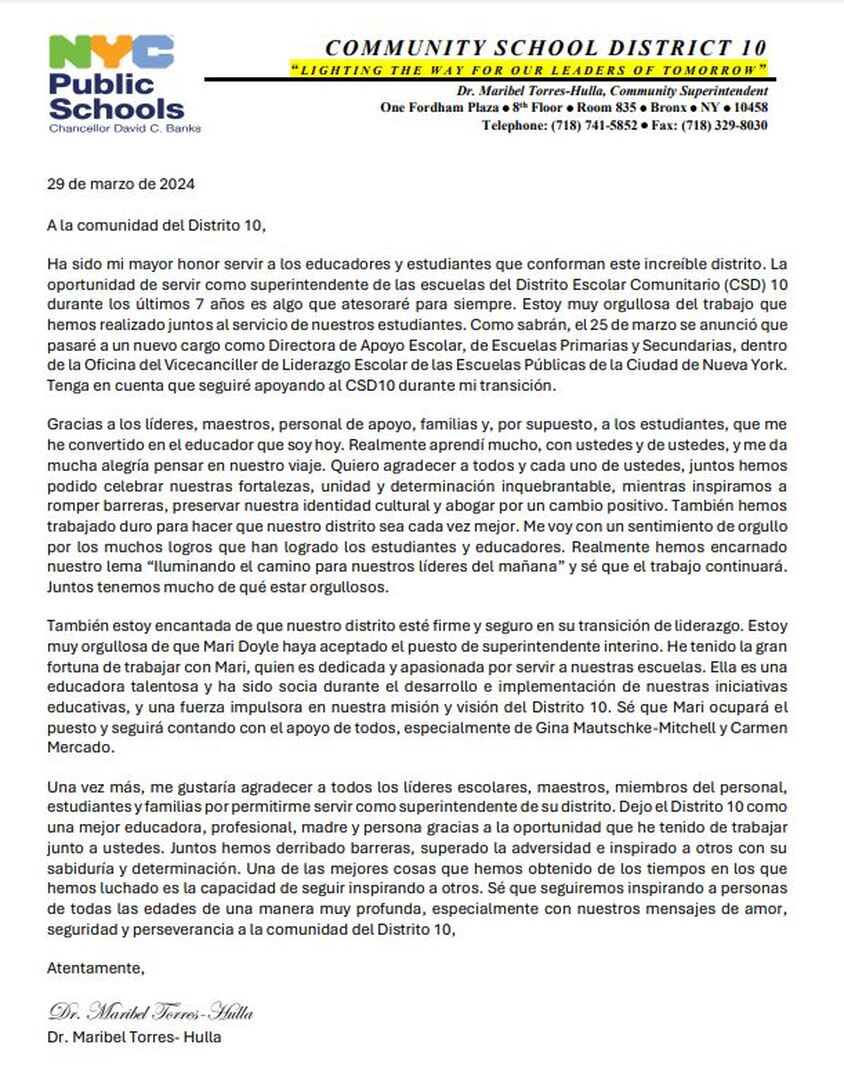 Good Afternoon AmPark Families, We truly hope that all are well after today's seismic activity! As you know, NYC and the surrounding area experienced an earthquake today that many of us felt here in the AmPark School building. AmPark's Building Response Team was in action immediately after the quake, working to ensure that all were safe and putting our building in a Shelter In Place response protocol. We are very glad to report that everyone was physically okay. Our staff have worked hard to support any students experiencing concern around this novel event. Thank you to you all for you support and again, we hope all are well. Please be reminded that April 10th, next Wednesday, there is no school in observance of Eid al-Fitr. Eid Mubarak to all who celebrate! Below, you will find information about the solar eclipse on Monday (also shared via Bloomz), a farewell message from (now former) Superintendent Maribel Torres-Hulla, and information about Riverdale Children's Theatre's upcoming show!  April 5th, 2024 Dear AmPark Family, Our young scientists at AmPark are abuzz about the very exciting celestial event happening on Monday, April 8th, 2024. For those who may not know; we will be experiencing a total solar eclipse! New York is an area that will be able to observe this remarkable occurrence as we are close to the “path of totality”; meaning that a partial solar eclipse will be visible from here in the Bronx. If you are interested in learning more about eclipses along with your children, please check out a great BrainPop on Solar Eclipses linked here. The solar eclipse will occur close to AmPark’s dismissal, from approximately 2:00 pm until 4:30 pm. While our young scientists have learned all about the eclipse and are certainly excited for Monday, given the nature of the event and the risk of harm to the eyes for looking directly at the sun, our students will be inside and observe live video coverage provided by NASA and National Geographic. This way, we will avoid any potential safety concerns but can experience this amazing happening together, as a school community. For safety reasons, we want to share information about best practices to safely view the eclipse, provided by the New York State Center for School Health. Please see their curated safety information below, with links to videos and helpful tips. How to stay safe observing the solar eclipse, from The New York State Center for School Health: Solar Eclipses Eye Safety: Protect Your Eyes from the Sun! Never look directly at the sun during a solar eclipse (except during the very brief time the sun is in total eclipse; and even then, with caution). Looking directly at the sun can cause permanent damage to your eyes. After viewing a solar eclipse, seek treatment from an eye care professional if you or your child have any changes in vision that continue to get worse. What You Need to Know to Protect Your Eyes During the Upcoming Solar Eclipses What is a solar eclipse?Solar eclipses occur when the moon moves between the sun and the earth. The moon causes the light of the sun to be blocked from reaching earth, casting a shadow on earth. A total solar eclipse is when the moon completely blocks the sun. The sun’s outer atmosphere (called the solar corona) glows around the moon when it is blocking the sun. A partial solar eclipse is when the moon only blocks part of the sun. Viewing a partial solar eclipse can expose your eye to the sun’s rays causing damage to the eye. How can your eyes be affected by a solar eclipse? Exposing your eyes to the sun without proper eye protection during a solar eclipse can cause “eclipse blindness” or retinal burns, also known as solar retinopathy. This exposure to the light can cause damage or even destroy cells in the retina (the back of the eye) that transmit what you see to the brain. This damage can be temporary or permanent and occurs with no pain. It can take a few hours to a few days after viewing the solar eclipse to realize the damage that has occurred. What are the eye symptoms that can occur from looking at a solar eclipse without proper eye protection?
How to safely watch a solar eclipse... Consider your eye health when watching a solar eclipse. The only time that you can safely view a solar eclipse without special equipment is during the part of a solar eclipse when the moon completely covers the sun. It is never safe to look at a partial solar eclipse without proper safety equipment or techniques. During the very brief time the sun is in total solar eclipse it is safe to look at it, but do so with caution. Even during the total solar eclipse, the total eclipse may last only a short period of time, and if you are looking towards the sun as the moon moves away from blocking the sun, you might get a solar burn on your retina which can cause permanent damage to your eyes. Talk with your eye care professional to determine the best viewing option for you. Here a few common ways to safely watch a solar eclipse: Solar Eclipse Glasses Use expert-approved solar eclipse glasses to view a solar eclipse safely and without damaging your eyes.
Pinhole projection This is the safest and most inexpensive way to watch a solar eclipse. This helps you avoid looking directly at the eclipse by using a projected image. This do-it-yourself project includes making a pinhole in a cardboard paper with the sun on one side and a piece of paper three feet away without obstruction to project the image on the other side. Keep in mind not to look through the pinhole at the sun. Other Options Welder’s glass: Number 14 welder’s glass provides effective protection and can be found at a local welder’s supply store. This glass will reduce the harmful rays that are emitted during the eclipse. Do not use if there are any scratches or damage to the glass. Mylar filters: Aluminized mylar plastic sheets are available as eclipse vision glasses or can be cut and made into a viewing box. Do not use if there are any scratches or damage to the sheet. Other ways: Other ways to safely watch a solar eclipse include on television or at the planetarium. How NOT to watch a solar eclipse Be careful about how you watch a solar eclipse. Do NOT use your smartphone: Watching a solar eclipse on your smartphone camera can put you at risk of accidentally looking at the sun when trying to line up your camera. It could possibly also damage your smartphone camera. Don’t take the risk. Do NOT use your camera viewfinder: Never look at a solar eclipse through the optical viewfinder of a camera. It can damage your eyes in the same way as looking directly at it. Do NOT use unsafe filters: Unless specifically designed for viewing a solar eclipse, no filter is safe to use with any optical device (telescopes, binoculars, etc). All color film, black-and-white film that contains no silver, photographic negatives with images on them (x-rays and snapshots), smoked glass, sunglasses (single or multiple pairs), photographic neutral density filters and polarizing filters are unsafe filters to watch a solar eclipse. Also, solar filters designed for eyepieces that come with inexpensive telescopes are also unsafe. All of these items can increase your risk of damaging your eyes. Solar Eclipse Eye Safety - Prevent Blindness Riverdale Children's Theatre Presents:
Comments are closed.
|


